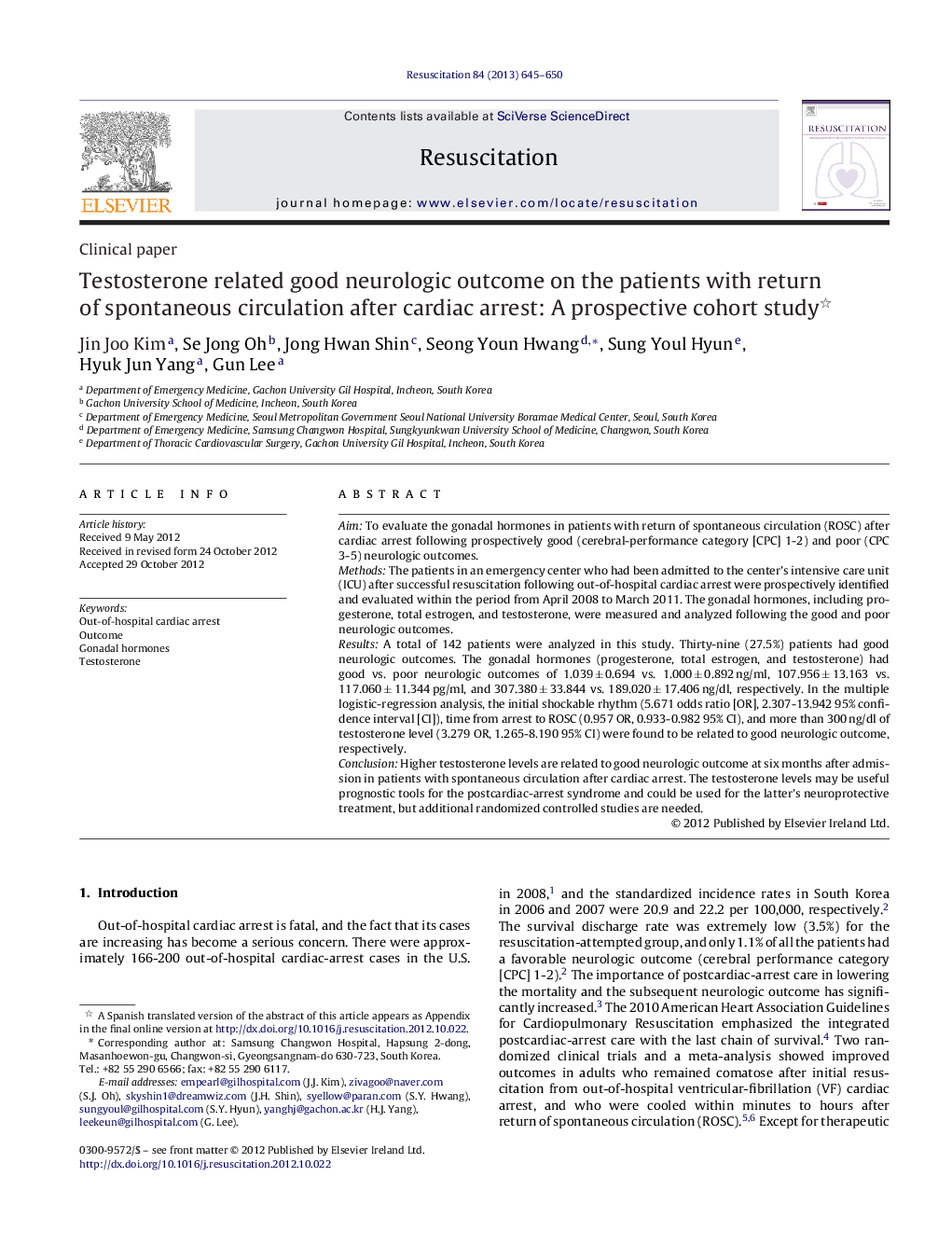| کد مقاله | کد نشریه | سال انتشار | مقاله انگلیسی | نسخه تمام متن |
|---|---|---|---|---|
| 5998768 | 1181447 | 2013 | 6 صفحه PDF | دانلود رایگان |
AimTo evaluate the gonadal hormones in patients with return of spontaneous circulation (ROSC) after cardiac arrest following prospectively good (cerebral-performance category [CPC] 1-2) and poor (CPC 3-5) neurologic outcomes.MethodsThe patients in an emergency center who had been admitted to the center's intensive care unit (ICU) after successful resuscitation following out-of-hospital cardiac arrest were prospectively identified and evaluated within the period from April 2008 to March 2011. The gonadal hormones, including progesterone, total estrogen, and testosterone, were measured and analyzed following the good and poor neurologic outcomes.ResultsA total of 142 patients were analyzed in this study. Thirty-nine (27.5%) patients had good neurologic outcomes. The gonadal hormones (progesterone, total estrogen, and testosterone) had good vs. poor neurologic outcomes of 1.039 ± 0.694 vs. 1.000 ± 0.892 ng/ml, 107.956 ± 13.163 vs. 117.060 ± 11.344 pg/ml, and 307.380 ± 33.844 vs. 189.020 ± 17.406 ng/dl, respectively. In the multiple logistic-regression analysis, the initial shockable rhythm (5.671 odds ratio [OR], 2.307-13.942 95% confidence interval [CI]), time from arrest to ROSC (0.957 OR, 0.933-0.982 95% CI), and more than 300 ng/dl of testosterone level (3.279 OR, 1.265-8.190 95% CI) were found to be related to good neurologic outcome, respectively.ConclusionHigher testosterone levels are related to good neurologic outcome at six months after admission in patients with spontaneous circulation after cardiac arrest. The testosterone levels may be useful prognostic tools for the postcardiac-arrest syndrome and could be used for the latter's neuroprotective treatment, but additional randomized controlled studies are needed.
Journal: Resuscitation - Volume 84, Issue 5, May 2013, Pages 645-650
